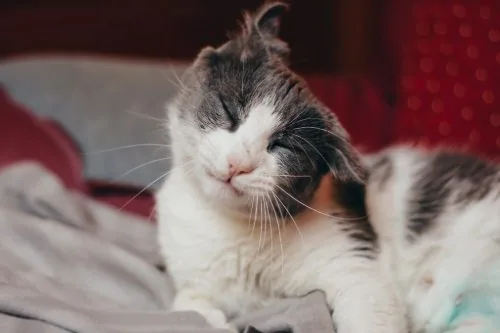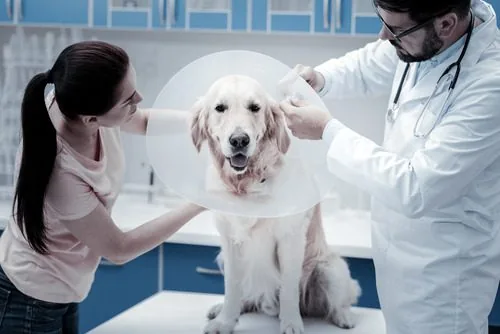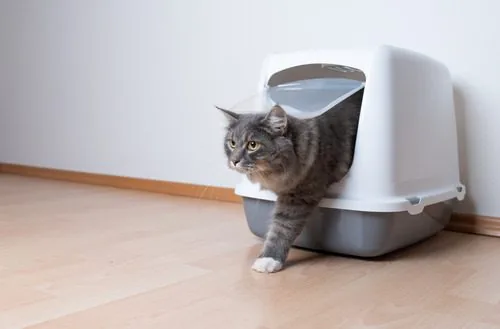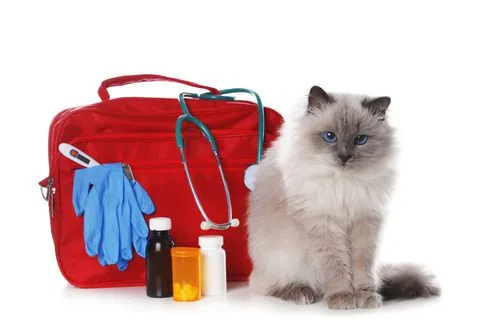Cat Shaking Head: Is It a Neurological Issue?
If you’ve noticed your cat shaking their head more than usual, it’s natural to wonder what might be causing it. In some cases, head shaking is minor and short-lived. But when it happens repeatedly or alongside other symptoms, it could point to a more serious concern, including a neurological issue. This blog dives into why you might see a cat shaking their head, how to tell if something neurological may be going on, and when to involve your veterinarian. Whether you’re just curious or genuinely concerned, this guide will give you a clearer understanding of what’s happening and what next steps to take.

Why Is My Cat Shaking Their Head?
Occasional head shaking is a normal behavior in cats. They may do this to dislodge an itch, respond to a sound, or remove debris. However, frequent or intense shaking usually signals an underlying problem. Head shaking in cats can stem from several causes, ranging from mild irritations to more serious health conditions. The challenge is figuring out what’s behind the behavior so you can address it appropriately.
Common Non-Neurological Causes
Before jumping to neurological concerns, it helps to rule out other explanations. Several issues can lead to a cat shaking head repeatedly:
- Ear infections – One of the most common reasons. These infections may be caused by bacteria, yeast, or mites and often come with discharge or odor.
- Ear mites – Especially common in kittens or outdoor cats. These tiny parasites cause intense itching.
- Foreign objects – Grass seeds or small debris can get lodged in the ear canal, causing irritation.
- Allergies – Food or environmental allergies can lead to inflammation that affects the ears.
- Polyps or tumors – Growths in the ear canal or middle ear can lead to discomfort and shaking.
- Wound or trauma – A scratch or injury near the ears might trigger a shaking response.
In these cases, shaking tends to be a reaction to discomfort or pain. If treated early, many of these problems resolve without long-term effects.
When to Suspect a Neurological Cause
If your cat is shaking their head and none of the more common explanations seem to apply or if you’re also seeing other unusual symptoms, it may be time to consider a neurological issue. The nervous system controls coordination, balance, and behavior. When something interferes with these processes, the result can include abnormal movements like frequent head shaking.
Additional Signs of Neurological Trouble
To determine whether your cat’s head shaking might have a neurological cause, keep an eye out for accompanying symptoms such as:
- Head tilt – A persistent tilt in the head’s position may point to a vestibular disorder.
- Loss of balance – Wobbling, falling, or difficulty walking in a straight line could signal issues in the brain or inner ear.
- Tremors or seizures – These are serious indicators of a neurological problem that require immediate attention.
- Unusual eye movements – Rapid back-and-forth eye motion (nystagmus) is often linked to inner ear or brain disorders.
- Behavior changes – Disorientation, confusion, or a change in demeanor may suggest neurological involvement.
The more of these signs you notice along with your cat shaking head behavior, the more likely a neurological exam is warranted.
Neurological Conditions That Can Cause Head Shaking in Cats
Several conditions may cause a cat to shake their head due to a disruption in neurological function. These conditions affect either the brain, spinal cord, or peripheral nervous system.
Vestibular Disease
One of the most common neurological causes of head shaking is vestibular disease, which affects the balance system located in the inner ear and brainstem. Cats with vestibular disease may also display a head tilt, loss of coordination, and circling behavior. Vestibular episodes can come on suddenly and be alarming but are not always life-threatening.
Brain Inflammation or Infection
Encephalitis (inflammation of the brain) and meningitis (inflammation of the protective layers around the brain and spinal cord) can lead to abnormal movements, including head shaking. These conditions may result from viral, bacterial, fungal, or parasitic infections.
Toxins Affecting the Nervous System
Exposure to certain toxins such as pesticides, household cleaners, or even some plants can impact a cat’s nervous system and cause neurological signs like head shaking, tremors, or disorientation. Toxic reactions often appear quickly and require urgent veterinary care.
Congenital or Genetic Disorders
Some cats are born with conditions that affect the brain’s development. Cerebellar hypoplasia is one example, where the part of the brain responsible for balance and coordination is underdeveloped. Cats with this condition may exhibit tremors or exaggerated head movements throughout life.
Tumors or Growths Affecting the Brain
Brain tumors, whether benign or malignant, can interfere with neurological function depending on their location. If a tumor presses on a part of the brain involved in balance or motor control, symptoms like head shaking may result.
What to Expect from a Veterinary Exam
If you bring your cat to the vet for head shaking, our veterinary team at Veterinary Healthcare Associates will first aim to rule out more common causes, such as an ear infection or foreign body. If no clear cause is found, or if additional neurological signs are present, your veterinarian may recommend a more in-depth neurological evaluation.
Diagnostic Tools That May Be Used
- Otoscope exam – To examine the ear canal for signs of infection, mites, or blockages.
- Blood tests – To screen for infection, inflammation, or toxin exposure.
- Neurological exam – To assess balance, reflexes, coordination, and eye movements.
- Imaging – Advanced diagnostics such as MRI or CT scans can provide a clearer view of the brain and inner ear structures.
In some cases, referral to a veterinary neurologist may be necessary for specialized testing or treatment options.
Why Early Evaluation Matters
Any time you observe new or unusual behavior in your cat, it’s important to have it checked out, especially when symptoms could involve the nervous system. While not every case of a cat shaking head is serious, identifying the root cause early can prevent further complications and improve outcomes. Even minor problems, if left untreated, can lead to worsening symptoms or discomfort. Cats often hide their discomfort well, so a behavior like head shaking might be one of the only visible signs that something is wrong. Prompt veterinary care allows for quicker diagnosis, targeted treatment, and peace of mind for you as a pet parent.
Partnering with Your Vet to Understand What’s Causing Head Shaking
Your cat’s behavior is one of the most helpful indicators of their health. If you notice your cat shaking their head more than usual or showing other concerning changes, it’s time to involve a trusted veterinary team. Veterinary Healthcare Associates in Winter Haven, FL is equipped to help you navigate these situations with clarity and care. Our experienced team will work with you to uncover the cause and guide you toward the most appropriate next steps. Call us today at (863) 324-3340 to schedule an appointment or talk with a team member. Whether the cause is simple or more complex, we’re here to help your cat feel better, sooner.
Recent Posts
Laparoscopic Spay vs Traditional Spay: What’s Best for Your Dog?
Laparoscopic Spay vs Traditional Spay: What’s Best for Your Dog? When comparing a laparoscopic spay vs traditional…
Laparoscopic Spay: Everything You Need to Know
Laparoscopic Spay: Everything You Need to Know Laparoscopic spay, also called a “minimally invasive spay,” is an…
When is Dog Diarrhea an Emergency?
When is Dog Diarrhea an Emergency? Dog owners know all too well that occasional digestive upset isn’t…
Is Cat Constipation an Emergency?
Is Cat Constipation an Emergency? Cats are often private about their habits, especially when it comes to…
Feline Emergencies: Warning Signs Your Cat is Crying for Help
Feline Emergencies: Warning Signs Your Cat is Crying for Help Cats have a reputation for being independent,…
About Veterinary Healthcare Associates
Veterinary Healthcare Associates in Winter Haven, FL, was established over 30 years ago as Maxwell Animal Clinic by Dr. John Maxwell. Maxwell Animal Clinic was a one-doctor general practice offering preventive care, dentistry, and standard surgical services to the community. As the years passed, Maxwell Animal Clinic evolved into a thriving 10-doctor general, specialty referral, and emergency veterinary practice.








